Companies must consider many factors when choosing a new marketing automation platform. One crucial consideration is integration with the Customer Relationship Management (CRM) system. Because marketing and sales are closely intertwined, companies need seamless dataflow.
This blog highlights Account Engagement’s integration with Salesforce.
So, what does integration mean, and why should you care?
Keep reading.
One login to access Account Engagement & Salesforce
New users can access Account Engagement through their Salesforce profile.
Here’s how it works: When IT needs to give a marketer access to Account Engagement, they simply create a Salesforce user and assign a unique Salesforce profile. That’s it. For marketers who leave the company, IT can promptly deactivate the former employee in Salesforce only.
A single Salesforce login is convenient for marketers who access both Account Engagement and Salesforce multiple times daily. Other marketing platforms require separate login credentials with twice the chance for systems to time out, making users reenter passwords and then authenticate. (Painful!)
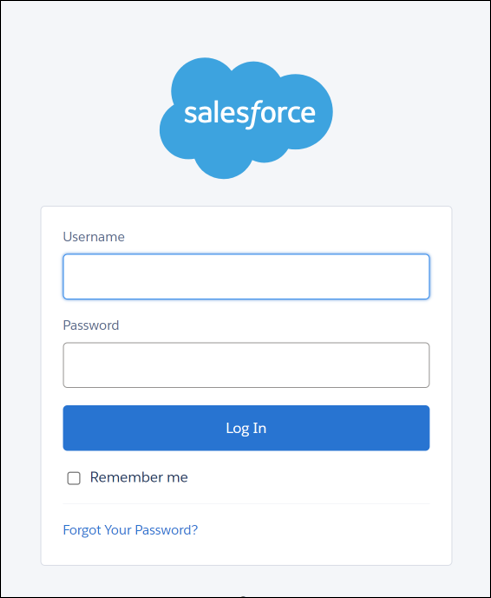
Account Engagement sits inside of Salesforce
Because Account Engagement is inside Salesforce, marketers can easily navigate between their marketing pages and Salesforce (Campaigns Leads and Contacts).
Other marketing platforms require toggling between separate systems. (Think about the difference between driving an RV or driving a truck that’s pulling a camper.)
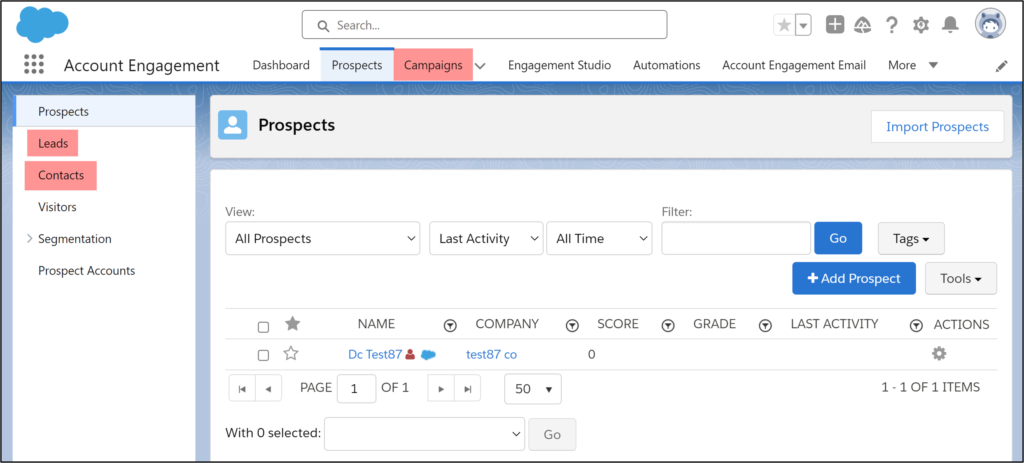
Plenty of API integration capacity
Many external marketing automation platforms hit Salesforce’s daily API limits, so marketers need to kick off a sync Friday afternoon so that it will continue the next day (Saturday).
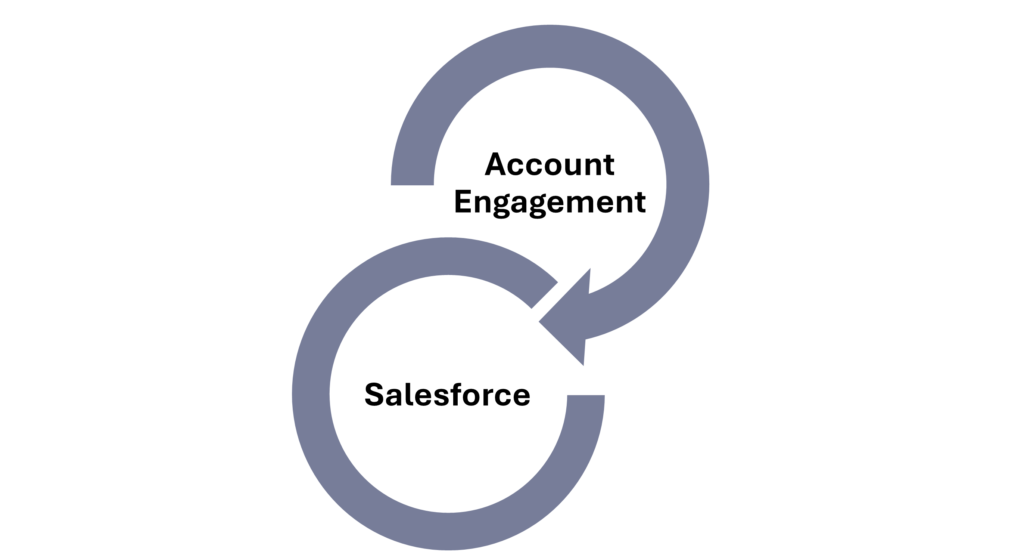
This screen (below) exemplifies how some marketing automation platforms regulate daily API call limits in Salesforce. When a marketing automation platform lives outside of Salesforce, it relies on API calls to update Salesforce. If your marketing database exceeds the daily API call limit, the systems need multiple days to update fully.
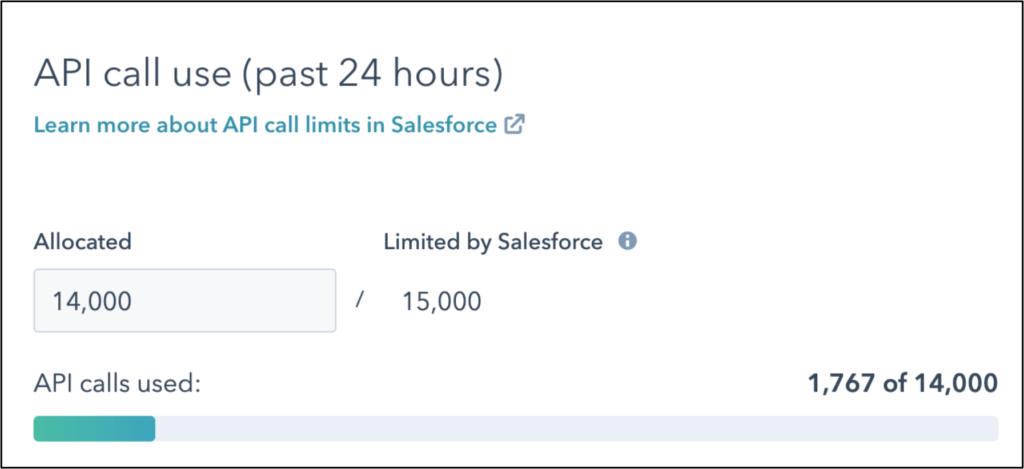
See complete marketing engagement in Salesforce
Sales can see relevant marketing engagement of their prospects.
Engagement history Dashboard data is visible between 90 days (Growth) and three years (Advanced with B2B Marketing Analytics enabled).
Other marketing platforms have limited insights shared (sales only sees the last five prospect actions, or the data shows unnecessary information, like when marketing added a prospect to a list).
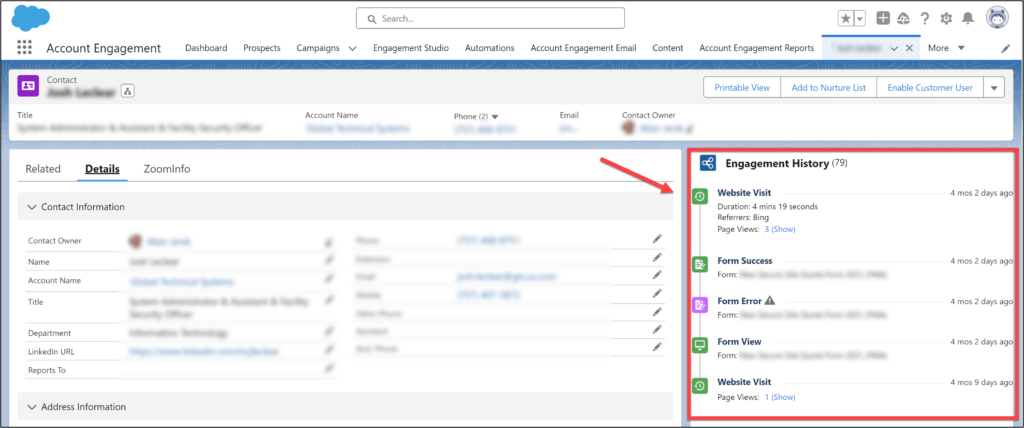
New Email Builder is a Salesforce Object
If you use Salesforce, you know about Salesforce objects like Leads, Contacts, and Opportunities. Guess what? The Account Engagement Email Builder uses Salesforce Objects. It’s part of the core Salesforce system.
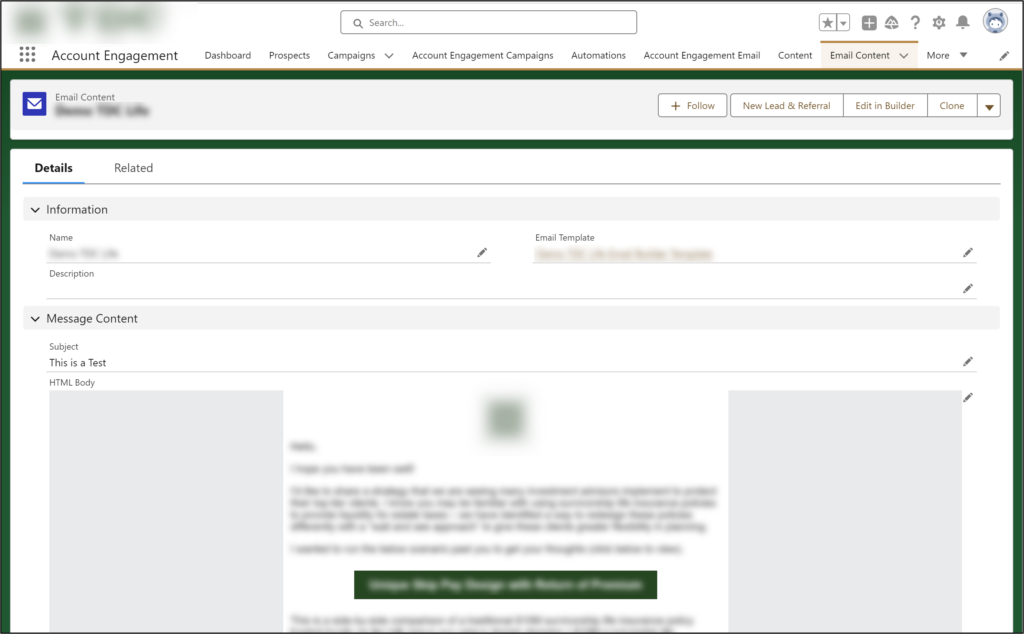
Marketers leverage Salesforce Customizable reports
Salesforce has more than 24 years of fine-tuned reporting capabilities. Marketers can plug into all the features of Salesforce reporting AND build custom report types that connect marketing with sales.
Learn more about Salesforce reports. Here are a couple of my favorite features:
- Customizable Reports: Users can create custom reports tailored to their specific needs, selecting the data fields they want to include, applying filters, and grouping data as required.
- Charts and Graphs: Salesforce reporting includes bar charts, pie charts, line charts, and scatter plots, enabling users to visualize data trends and patterns easily.
- Dashboards: Reports can be combined into dashboards, providing a high-level overview of key metrics and allowing users to monitor performance at a glance.
- Scheduled Reports: Users can schedule reports to be run at specific intervals and delivered to designated recipients via email, ensuring timely access to important data.
- Drill-down Capability: Users can drill down from summary data to detailed records, facilitating a deeper understanding of underlying trends and outliers.
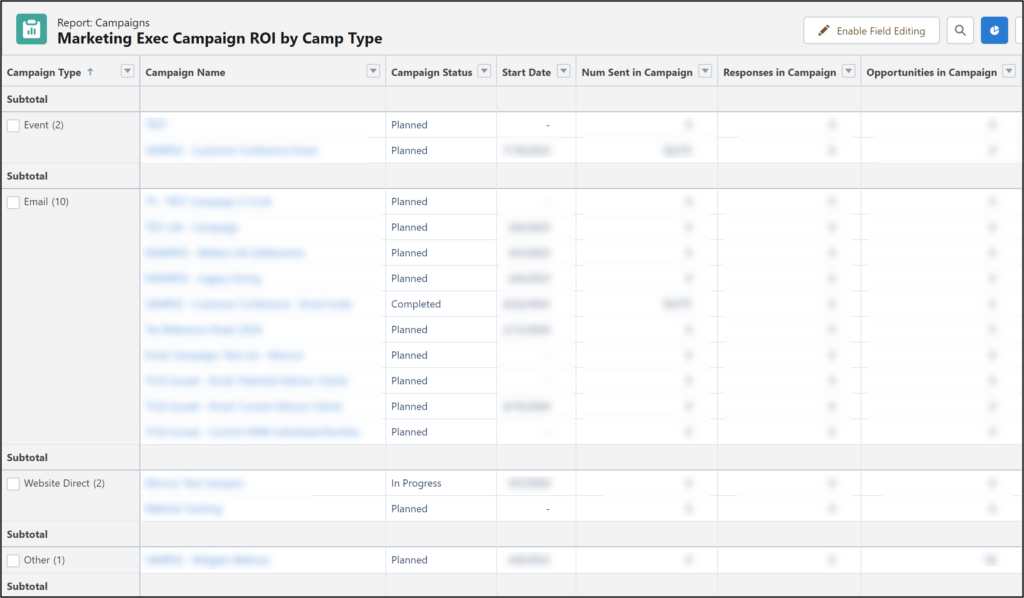
Want more? Read about Account Engagement’s ability to streamline your sales and marketing efforts into one platform. Using Account Engagement with Salesforce.
